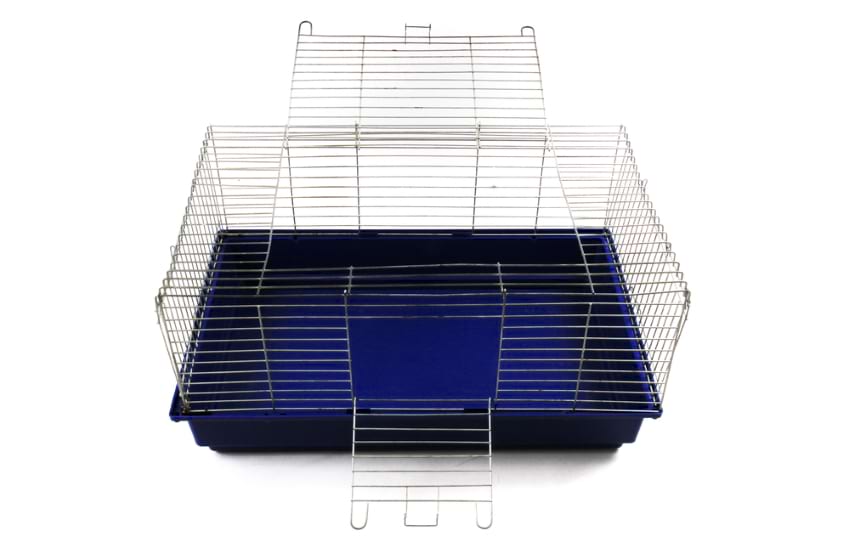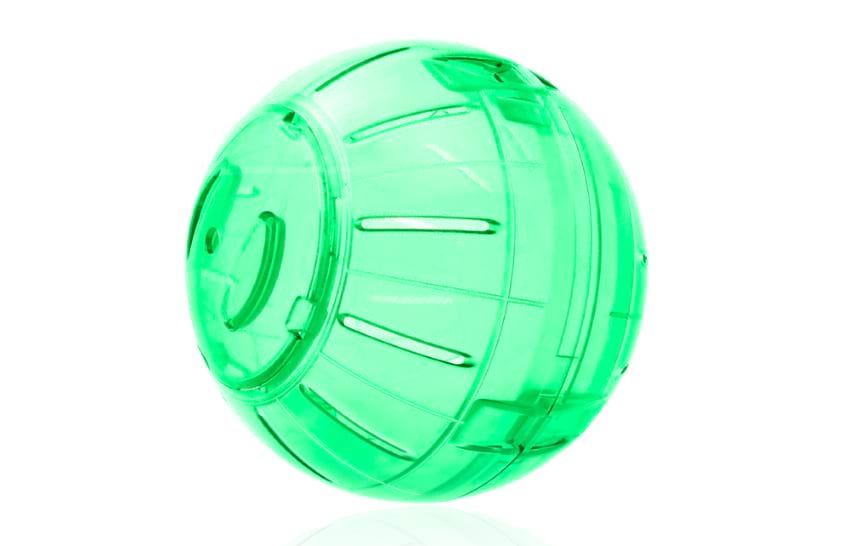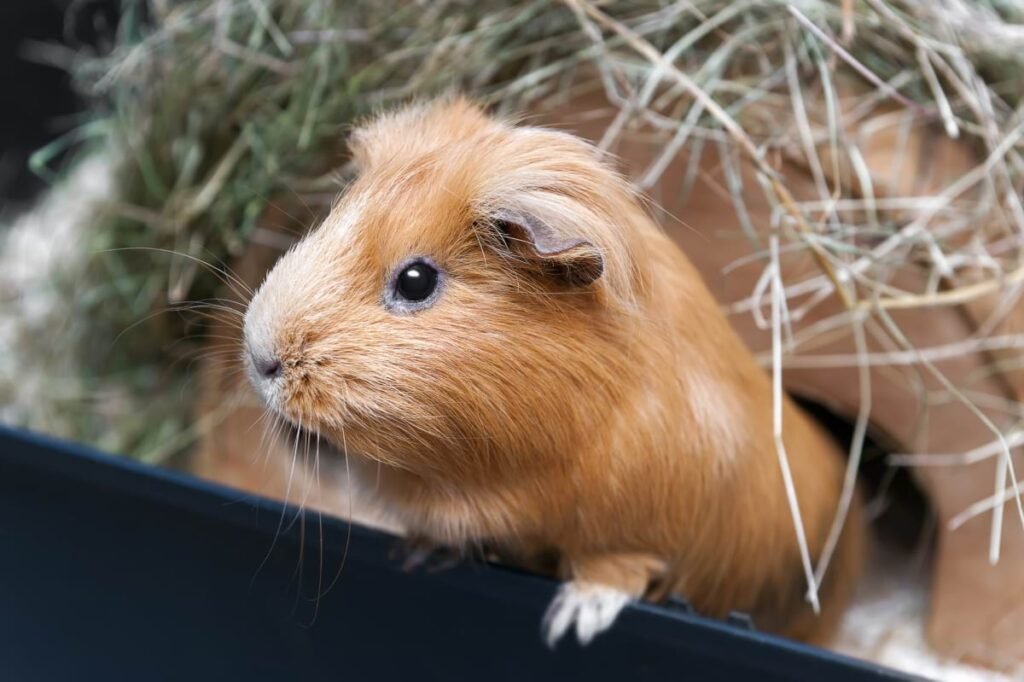When I first brought home my first pair of guinea pigs, I made several mistakes that are common among new piggy owners. I was unaware of the potential dangers posed by certain items sold in pet stores. Fortunately, there is now a wealth of information available to educate and guide new guinea pig owners.
Some common items that are unsafe for guinea pigs include small cages, hamster wheels and balls, harnesses, and certain foods and treats labeled as guinea pig-safe. It’s also important to avoid items with small openings that could potentially trap your piggies.
In this article, I will outline 13 items that are unsafe for guinea pigs, along with explanations and alternative options that will help ensure the health and happiness of your beloved pets.
Unsafe Guinea Pig Cages and Accessories
1. Unsuitable Cages and Hutches
Unfortunately, most cages and hutches sold in pet stores are too small for guinea pigs, who require a minimum of 7.5 square feet of floor space.
Confinement in a small space can lead to issues such as lack of exercise, boredom, and even depression. Additionally, small cages tend to get dirty quickly, increasing the risk of health problems like bumblefoot or respiratory infections if not cleaned regularly.

2. Wheels
Unlike hamsters, guinea pigs do not require wheels for exercise. In fact, wheels can cause spinal injuries and should be avoided.
Instead of a wheel, provide your guinea pigs with a spacious cage that allows them to move around freely. While multiple levels are not necessary, having ample flat space on the cage’s base is important. Additionally, consider offering regular floor time as a way to give your guinea pigs exercise.
3. Hamster Balls
Hamster balls are not suitable for any pet, including guinea pigs. These balls can cause stress and lack proper ventilation, posing a risk of injury if your guinea pig collides with objects while inside.

4. Harnesses
While the idea of taking your guinea pig for a walk may seem appealing, using harnesses can harm their delicate spines. Instead of walks, consider allowing your guinea pigs to explore a piggy-proofed room. They may also enjoy hiding in the lower compartments of cat trees (while the cats are safely elsewhere)!
If you do take your guinea pigs outside in a playpen, ensure constant supervision. Be mindful of the weather conditions, provide shade on hot days, and watch out for potential hazards like rain or predators.
5. Hay Racks
While not all hay racks are unsafe, many can pose a danger to guinea pigs. Avoid hay racks with openings that are too small for your guinea pigs to access fully.
It’s essential for your guinea pigs to have easy access to their hay without any restrictions. Opt for hay piles, hay bags, or racks with large openings to ensure they can eat comfortably.
6. Hides and Toys with Small Openings
Hides with small openings can be hazardous as guinea pigs may get their heads stuck inside. The same applies to toys with loops or small openings that could pose a risk.
Guinea pigs are most likely to get stuck when reaching for food or chewing on items, so it’s crucial to avoid anything with small openings that could trap them.

7. Toys with Small, Removable Pieces
As guinea pigs love to chew, it’s important to avoid toys with small pieces that could become choking hazards. Opt for safe toys without removable parts that could be swallowed.
8. Puppy Pee Pads
Many pet owners use puppy pee pads in cages or litter boxes, but it’s crucial to ensure that they are covered to prevent guinea pigs from chewing on them. Ingesting disposable pee pads can lead to intestinal blockages.
9. Plastic Items
While plastic hidey houses are commonly sold in pet stores, they can pose a risk if your guinea pig chews on them. If your guinea pigs tend to chew on plastic items, it’s best to remove them from the cage to avoid potential harm.
I personally prefer to avoid plastic items altogether to prevent any chewing incidents that may arise. It’s always better to err on the side of caution when it comes to your pets’ safety.
10. Open-top Outdoor Playpens
While outdoor playpens can be a fun way for guinea pigs to enjoy the outdoors, it’s essential to supervise them at all times. Leaving guinea pigs unattended in an open-top playpen can expose them to potential dangers such as birds of prey, outdoor cats, or other predators.
Always remain vigilant and never leave your guinea pigs unattended outdoors, as it only takes a moment for an accident to occur.
Unsafe Foods Sold for Guinea Pigs
11. Pellets with Bright Pieces or Seeds
For a well-balanced diet, guinea pigs should be fed plain, timothy-based pellets from reputable brands. Avoid brightly-colored pellets or mixes containing seeds, as these can be harmful to your guinea pigs.

12. Dairy Treats
Avoid feeding guinea pigs dairy treats like yogurt drops, as dairy products are not suitable for their diet. Instead, offer small amounts of fruits or hand-feed them their daily vegetables as treats.
If you choose to give your guinea pigs store-bought treats, make sure to check the ingredients and opt for ones with minimal additives.
13. Vitamin C Drops
While vitamin C drops are commonly sold as supplements for guinea pigs, they may not be necessary if your pets have a balanced diet. These drops can degrade in sunlight and alter the taste of water, potentially reducing your guinea pigs’ water intake.
It’s important to prioritize fresh vegetables rich in vitamin C as part of your guinea pigs’ diet, rather than relying solely on supplements. Remember, supplements should complement a healthy diet, not replace it entirely.
It’s easy to make mistakes when caring for guinea pigs, especially if you’re new to pet ownership. Don’t be too hard on yourself if you’ve purchased items that are unsuitable for your pets—simply replace them with safer alternatives now that you’re better informed!
Always conduct thorough research before buying supplies for your guinea pigs to ensure their safety and well-being. Pet stores may market products that are not suitable for your pets, so it’s essential to be discerning in your purchases.

